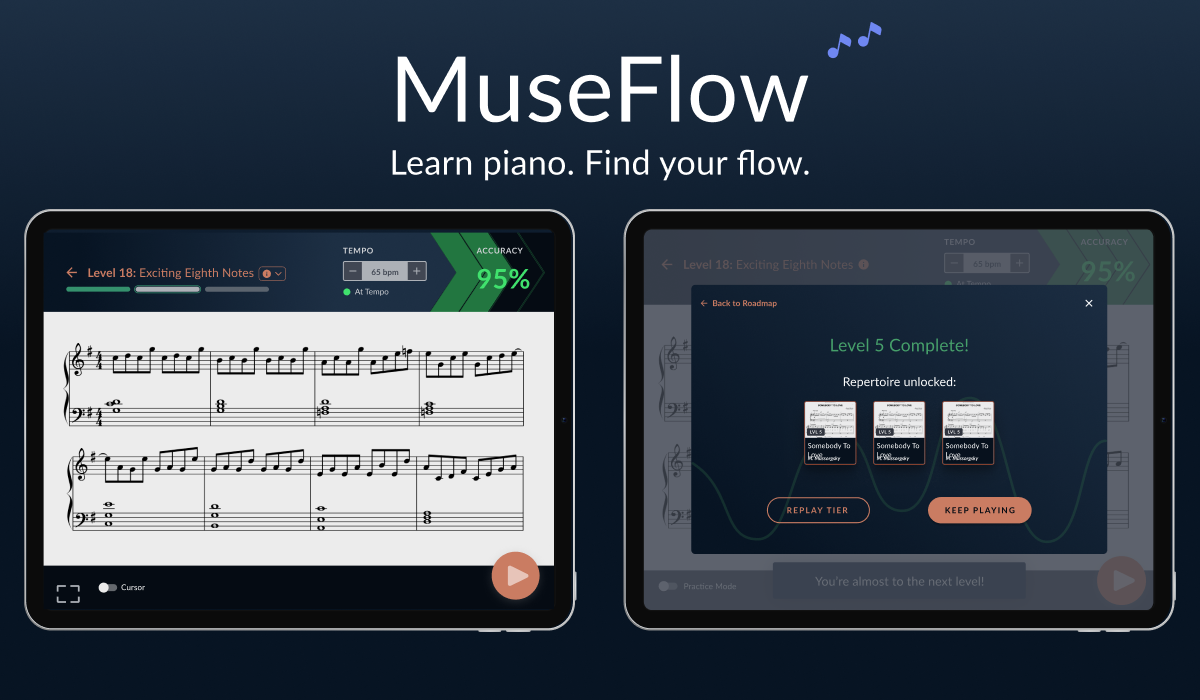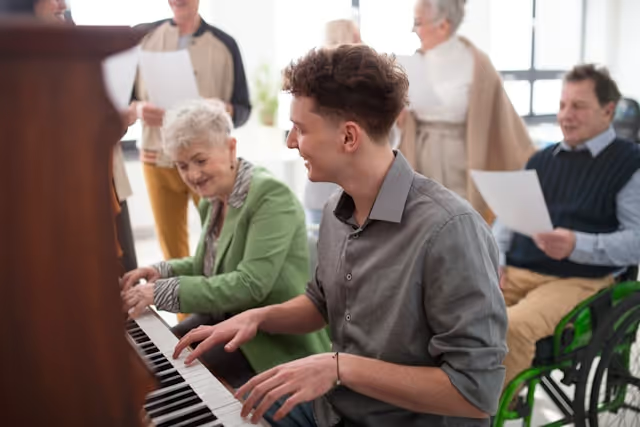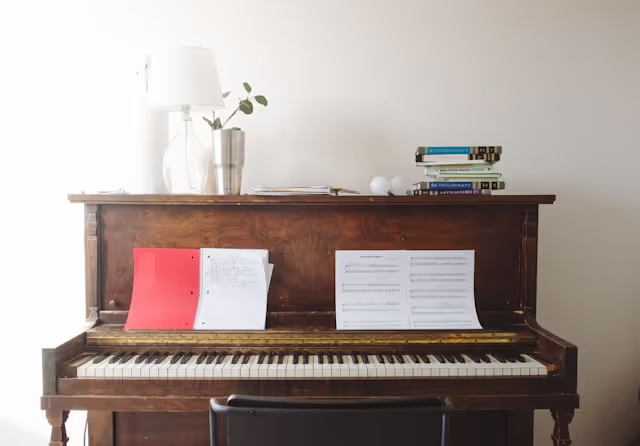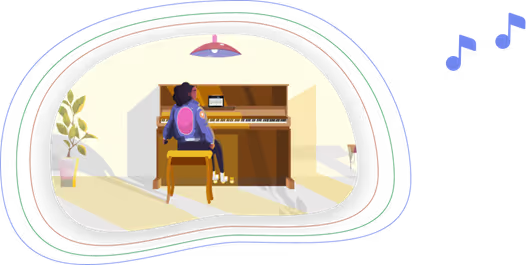Why MuseFlow is a Top Skoove Competitor for Piano Learning
Choosing the right piano learning app can feel overwhelming. With so many options available, it's difficult to know which one will help you achieve your musical goals. For many, Skoove has been a popular starting point, but a new generation of learning tools is challenging the status quo.
If you're looking for a powerful Skoove competitor that offers a more engaging and effective path to piano mastery, you've come to the right place. MuseFlow is not just another Skoove alternative; it's a revolutionary approach that transforms piano practice from a chore into an exciting adventure.
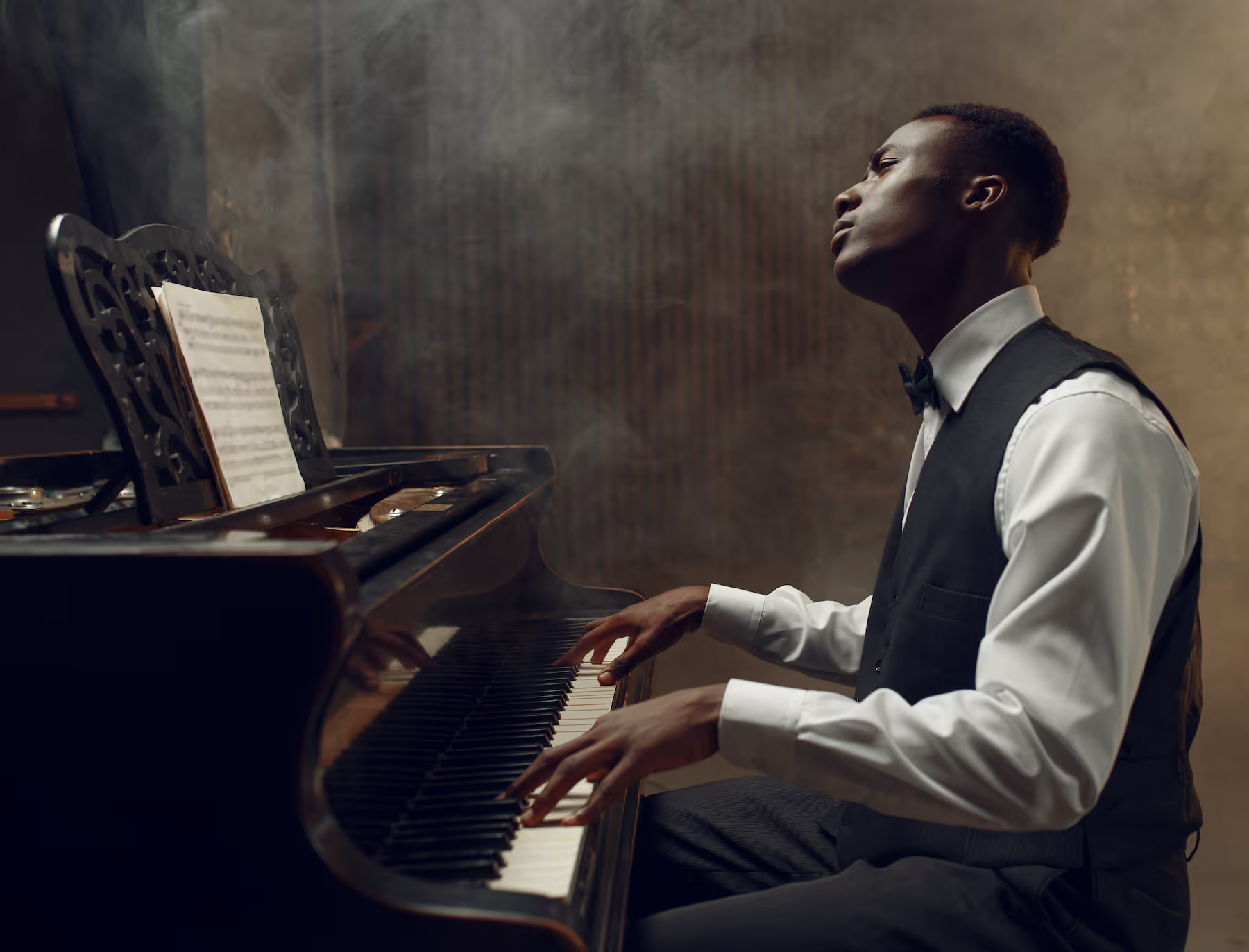
Skoove: Traditional Music Education
Skoove is known for its broad piano education platform. It's a solid choice for those looking for a resource that includes popular songs, classical pieces, and music theory lessons. Those who want to explore different musical styles and play favorite tunes often select Skoove to improve their general musicianship.
However, while the app excels at teaching you to play specific songs, it follows a traditional educational model that often involves repetitive practice of individual pieces until they're memorized, which can lead to dependency on the app rather than developing independent musical skills.
MuseFlow: Sight Reading Specialization
If you're serious about developing sight reading skills specifically, this is where MuseFlow truly shines as the leading Skoove competitor. While other apps like Skoove offer broad musical education, MuseFlow has built its entire learning system around one critical skill: sight reading fluency.
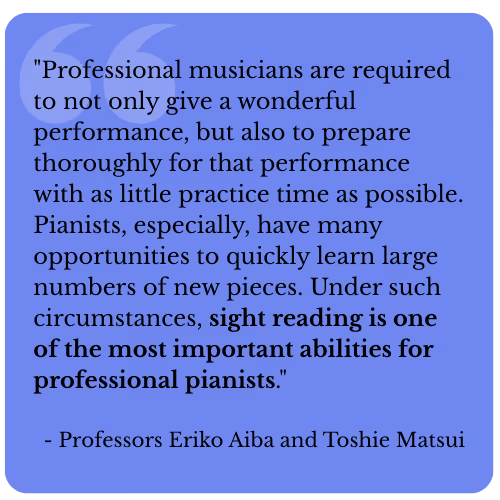
MuseFlow focuses on building your core musical skills through engaging, game-like challenges designed to keep you in a state of "Flow." The concept of Flow State is familiar to us, as we've all experienced it in various times. Flow occurs when your skill and the challenge are perfectly matched, so you're fully absorbed in what you're doing. You've likely experienced this at work, doing a hobby, or performing some enjoyable task where you "lose track of time."
MuseFlow provides instant, real-time feedback on every note you play, creating a tight feedback loop that accelerates learning and prevents bad habits from forming. This immediate reinforcement is crucial for building confidence and developing neural pathways for fluent sight reading.
An Alternative to Skoove for Playing Songs
Here's a key: Skoove teaches you to play songs. MuseFlow teaches you to read music like a language.
MuseFlow leverages cutting-edge technologies and AI (Artificial Intelligence) to deliver an endless amount of new music. This feat is simply impossible with traditional methods or apps like Skoove that rely on pre-recorded content. This technology creates a personalized learning experience that adapts to your skill level and pace.
Better yet, MuseFlow's adaptive learning system ensures that you're on a custom learning plan designed to increase your mastery. And the scientifically-based approach is called "gamification."
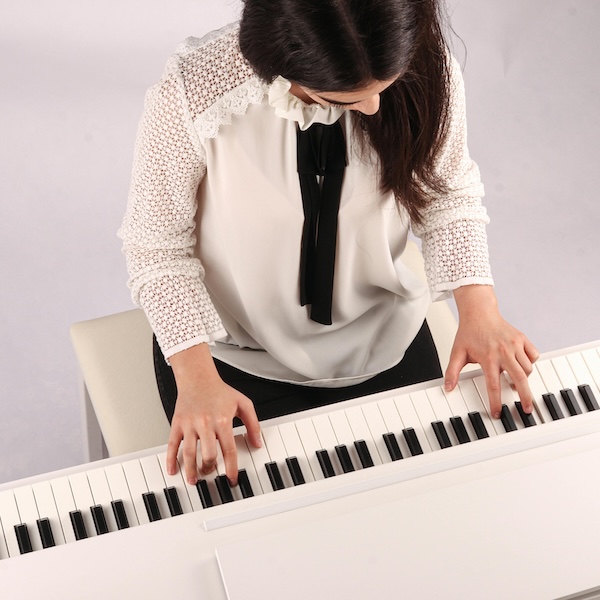
Why Gamification Accelerates Sight Reading Development
A gamified approach transforms sight reading practice from a tedious exercise into an addictive, rewarding experience. For a deeper dive into why this method is so powerful, you can explore our article on how to learn piano with game-like lessons.
The power of gamification in education is backed by extensive research. Studies have shown that when learning is structured like a game, it leads to significant improvements in engagement, motivation, and knowledge retention. The Smithsonian published an article on the 5 Benefits of Gamification, citing how the high value of gamification for education is underutilized.
If you're learning to sight read piano, here's what gamification does for you:
- Enhanced Motivation and Engagement: Gamified systems tap into our natural desire for achievement and competition. By setting clear goals, tracking progress, and offering rewards, MuseFlow keeps you motivated to practice daily.
- Improved Cognitive Function: Learning to play the piano is one of the best things you can do for your brain. Research has shown that piano practice can improve executive functions, memory, and processing speed.
- Accelerated Skill Acquisition: The immediate feedback loop in a gamified system is incredibly powerful. When you get instant confirmation that you've played a note correctly, your brain forms stronger neural connections.
Choosing the Right Path for Your Goals
The best piano learning app depends on your specific goals and learning style. Learners seeking a broad musical education with traditional instruction methods might choose Skoove. However, if your primary goal is to master fluent sight reading skills, MuseFlow is a specialized solution.


.svg)

.jpg)

